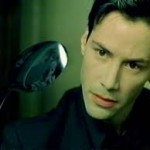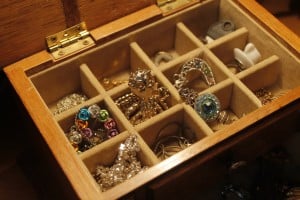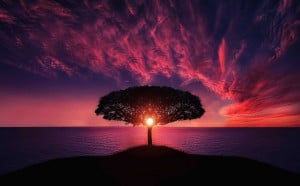by Porsha Williams
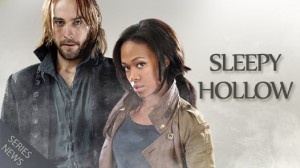 I was conversing lightly with my ‘male bestie’ earlier this week, while watching his DVR’d first episode of “Sleepy Hollow” on NBC. As avid sci-fi and fantasy fans, we found ourselves immediately sucked into the lushness of this show. Within the set of scenes that came after the commercial break, we both mutually chuckled at the scene where the African-American Police Lieutenant gave the ‘evil eye’ to the resurrected soldier Icabod Crane. In that scene, Icabod marvels that not only was a female police lieutenant, but that she was wearing trousers. He then inquired as to if she had been emancipated from slavery. After a sarcastic comment and eyeroll, she informed Icabod that African-Americans had been freed over 150 years ago.
I was conversing lightly with my ‘male bestie’ earlier this week, while watching his DVR’d first episode of “Sleepy Hollow” on NBC. As avid sci-fi and fantasy fans, we found ourselves immediately sucked into the lushness of this show. Within the set of scenes that came after the commercial break, we both mutually chuckled at the scene where the African-American Police Lieutenant gave the ‘evil eye’ to the resurrected soldier Icabod Crane. In that scene, Icabod marvels that not only was a female police lieutenant, but that she was wearing trousers. He then inquired as to if she had been emancipated from slavery. After a sarcastic comment and eyeroll, she informed Icabod that African-Americans had been freed over 150 years ago.
At her reaction and subsequent statement, my bestie scoffed and muttered “i will never understand what the big deal is.”
Fast-Forward, to me leaving his apt. in a cloud of frustrated energy that was boiling over to anger. As I got into my car, I realized two things: #1) I’d left before even finishing the show and #2) my bestie would never understand me fully and completely!
Joking about our past-lives was the subject that actually brought us together as friends – while we agree on just about anything, we will never not be able to agree when it comes to the big three: Politics, Religion and Race.
I won’t even get into the genre of politics, as that genre is one I think needs to stay as separate as possible from the genres of race and religion.
While it’s somewhat hurtful that someone I’d trust with any station of my life cannot see how deeply rooted I am to the past – both mine as well as my ancestors, I’m of the mind that differences are what makes us unique. If we don’t have them, we can’t learn from them in order to move forward.
As I drove, I began thinking harder about our dispute…
“Bestie” felt that all people no matter what race/ethnicity should stop referencing or even thinking about slavery in the United States. Even moreso, we as human beings (ie. Jews, Native Americans, African-Americans, etc) should realize that there’s nothing more to learn from the past – hence, there’s no reason to continue discussing or even commemorating such events. We should move forward, realizing that these events had NO BEARING on us as human-beings living in the 20th century.
…Yeaaaaah…that’s what I said.
I don’t know how true ‘genetic memory’ works, if it even exists – I say that term in reference to mostly our DNA and/or memories embedded at the cellular level. What I believe as a Pagan, is that ancestral remembering to worship can be done by many methods, and should be done considering how very much we can learn from ancestors both dead and alive.
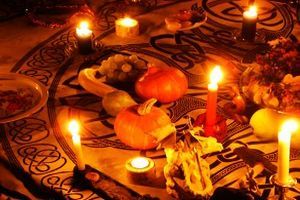 On my altar, I keep pictures of those unknown ancestors, as well as those I’ve always held most dear. Examples include my maternal grandmother Fern Arlyne (whose middle name I was given) and her husband Lark Edward (whose middle name is shared on both sides – the middle name I gave my son Lucian Edward, as it is the common middle name on both sides). I also keep pictures of my son Lucian Edward, whose latin-based name means ‘the bringer of light’ or ‘the man of light’ in most translations. Lastly, pictures of various cousins/aunts and uncles from the turn of the century on the maternal side – whose strength was well-known. Through offerings, I find the blessings of knowledge from these folks.
On my altar, I keep pictures of those unknown ancestors, as well as those I’ve always held most dear. Examples include my maternal grandmother Fern Arlyne (whose middle name I was given) and her husband Lark Edward (whose middle name is shared on both sides – the middle name I gave my son Lucian Edward, as it is the common middle name on both sides). I also keep pictures of my son Lucian Edward, whose latin-based name means ‘the bringer of light’ or ‘the man of light’ in most translations. Lastly, pictures of various cousins/aunts and uncles from the turn of the century on the maternal side – whose strength was well-known. Through offerings, I find the blessings of knowledge from these folks.
From what they’ve known, I find my way. I couldn’t possibly imagine not remembering any and all lessons they left in their experiences in this world. It’s why not remembering my ancestors; or more importantly those who may have lived partially or fully as slaves’ trials and tribulations is so offensive to me.
Those folks, more than anyone I know would have learned how to read people well enough to ensure the safety of themselves and their families.
This time of year moves me to honor my ancestors; oddly enough, Mabon is the time I feel them most strongly. What’s most interesting about this time of year is that it’s a time to reap the benefits of our hard work on the Harvest (both theoretical and literal). Mabon is best described via Llewellyn’s as the ‘harvest time that we benefit from the fruits of our labors, both real and metaphorical.’ Via Llewellyn’s Sabbats Almanac, ‘the Fall Equinox, or Mabon, is one of only two times during the year when night & day are equally balanced.’ (Llewellyn’s, p. 284). It makes me think of the many harvests that my slave ancestors participated in, with no choice in the matter. Were they, in any aspect, proud of what they produced? Or were they just glad another season had seen its end – as they got mentally prepared for the heat and hard work that would abound next time around? Maybe it’s why I think hardest about them this time of year. I think of what I’ve sown to be reaped; was it something I could be proud of, or something I’d forced out to appease others? So many questions, so many roads that could be taken. Why would I ever not refer, during my daily life and worship to lessons learned in the past? And what is it that I consider so necessary from these lessons?
Balance. Balance is what I’ve always achieved via communal with my ancestors. Knowledge of similar situations to my inquiries, and how they were handled is what most comes to light. But lastly, knowledge of past experiences and whom they happened too – including the final resolution, is what best prepares me for the ‘good fight.’ It’s what reminds me of the strength within.
So many stories, so many examples! Take the lessons learned on perserverance from my maternal grandmother, who raised 7 children alone due to her husband being hit by a Mack truck while on the job. And my paternal grandmother, who raised 6 children alone because her husband decided New York City, NY during the 1950s sounding a lot more fun than providing for the family he helped create. One of my favorite lessons – on courage – come from my maternal great=grandmother, who loved her children so much that she left the farm and the husband it came with in order to make sure the last few of her 13 living children could complete high school. Lastly, paternal great-grandfather Charley Patton dubbed ‘The King of the Delta Blues!’ His talent in creating the slide guitar method was a lesson that we could do ANYTHING we wanted despite humble beginnings – as long as we didn’t let our demons (ie. Drinking and Partying) rule over us.
These lessons I learned from my ancestors are the reason I’ll never stop learning from the past. These occurrences I cannot forget carry a world of wealth. Their value comes as a blessing from the curse that was slavery. You can’t have one without the other. I find ways to honor them by investing our past as African-Americans, and finding the value in such lessons.
Until we meet again, Brightest Blessings…
~PW



